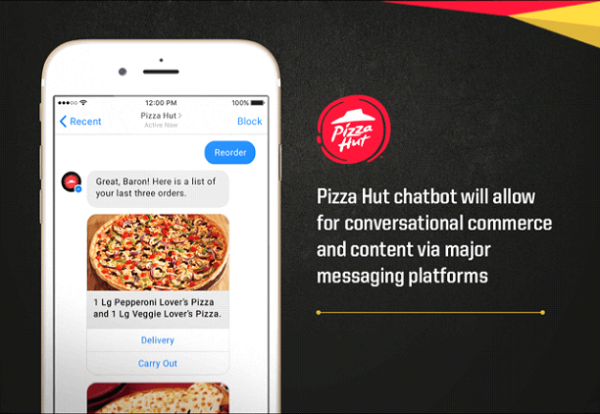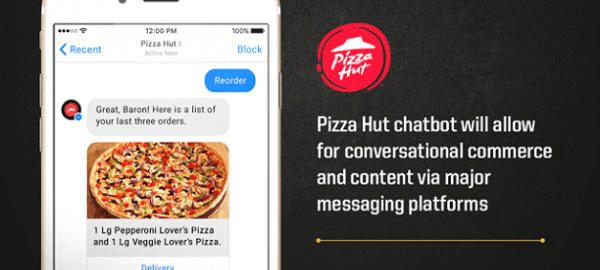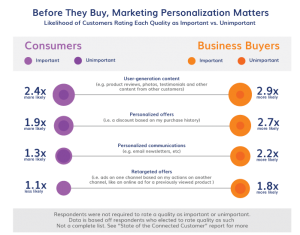— November 25, 2017
Where does your target audience hang out?
For many businesses, the answer to this question is simple: social media.
Over the past decade, social media channels have transformed how businesses communicate with their audiences because these platforms offer direct ways for you to market your brand, and also provide instant feedback.
But with so much fierce competition, businesses have realized that there is no such thing as time off, and in fact, companies that cannot respond to customer inquiries at all hours of the night will fall behind companies that have made provisions to remain online 24/7.
So what happens to small businesses that can’t afford to do that?
Enter the chatbot, an AI-driven solution that provides multiple benefits on social media channels for your business.
Chatbots are computer programs that can hold a conversation with a user, answer questions, and even make recommendations on products and services. Some have become so sophisticated that users find it hard to believe that they are not talking to a real person.
Let’s take a look at the benefits of chatbots, and also dive into some of the drawbacks of this technology.
Chatbots Can Personalize Your Social Media Channel
Automated marketing on social media has always lacked that personal, human touch that customers crave as part of their experience with your company.
But that is rapidly changing as chatbot technology develops to such an extent that the bots are able to sift through thousands of responses and cues based on natural language software.
This is allowing brands to create their own social ordering platforms where users can order products through the use of chatbot.
Pizza Hut, which dominates the fast-food pizza market, recently introduced a chatbot that is accessible through Twitter or Facebook Messenger.
Customers can place orders for pizza and other items through the chatbot, and the chatbot stores previous ordering information, so that the next time a customer visits, he or she can type in the word ‘reorder,’ and the chatbot will display the past three orders, simplifying the process.
Not only does the chatbot provide interaction that feels personal and very non-robotic, but it also saves customers from having to type information online. Customers also don’t have to worry about being placed on hold when they try to make a phone order.

Image: Pizza Hut
Chatbots Can Resolve Problems and Prevent Negative Feedback
One of the strengths of social media is that businesses receive instant feedback from their audiences.
But that can also be a weakness if a company generates negative feedback due to a customer service issue on its social media platform.
But studies have found that a large majority of issues that trigger customer dissatisfaction can be resolved without the need for a human representative.
Chatbots can help customers obtain refunds, direct customers to finding a correct item if they purchased a wrong item, or connect an irate customer who still isn’t satisfied by the chatbot’s efforts, to a human customer service agent for further assistance.
Research is showing that customers are increasingly frustrated by human customer service representatives who don’t seem to be responsive to their needs, and often seem bothered that they have to fix a problem.
Chatbots have no emotions and are programmed to zero in on a customer’s problem, and then immediately provide multiple solutions. All without asking the customer to be placed on hold, or arguing that what the customer is asking isn’t possible.
Chatbots Can Eliminate the Need For An App
There are advantages for your business to have a dedicated app, but you’re competing with thousands of other apps, and you have to constantly update and promote your app and ensure that you are using the most advantageous technology.
But if you migrate to Facebook Messenger, you can use a chatbot to engage your audience when it comes to ordering products and services, obtaining content and receiving notifications about new content you’ve posted.
Uber was one of the first major brands to build a chatbot directly into Facebook Messenger, which allows users to order a ride without having to click on the Uber app.
When Uber first launched the chatbot feature, it did something else that was unique, which is that while the bot handled common customer inquiries, Uber actually staffed employees to respond more directly to customer conversations.

Image: Uber/Facebook
But that quickly became too difficult, because thousands of Uber users began interacting with the chatbot, causing an overload for the human responders.
The chatbot is now nearly fully automated, but it is all part of Uber’s goal of having a presence on every platform and in every location where their users are hanging out.
Chatbots Cannot Replace Human Interaction
One of the drawbacks of using chatbots on social media is that businesses become comfortable with the efficiency of customer service and forget that regardless of their sophistication, chatbots cannot replace live, human interaction with customers.
Despite significant improvements in machine learning technology and natural language processing, a chatbot is still a computer program that can only go so far in responding to queries.
And the truth is, customers crave that human touch, even if they are also often frustrated by some of those experiences.
There are just some things that chatbots can’t do, and so it’s important that you remember to give your customers a ‘kill-switch,’ which ends the chatbot interaction and directs them to a human representative.
Another Tool In Your Arsenal
If you think of chatbots as another tool in your social media marketing arsenal, you can reap significant benefits, and boost your branding.
Chatbots won’t replace customer service departments, but they can enhance the customer experience by making it more efficient, less contentious and more convenient.
Digital & Social Articles on Business 2 Community
(35)






